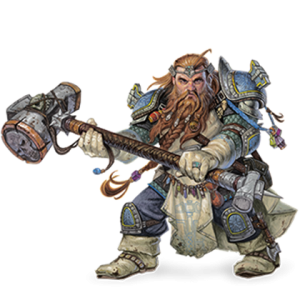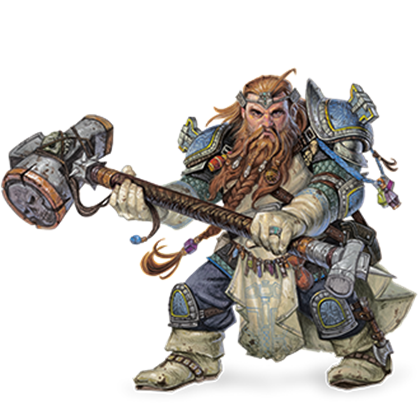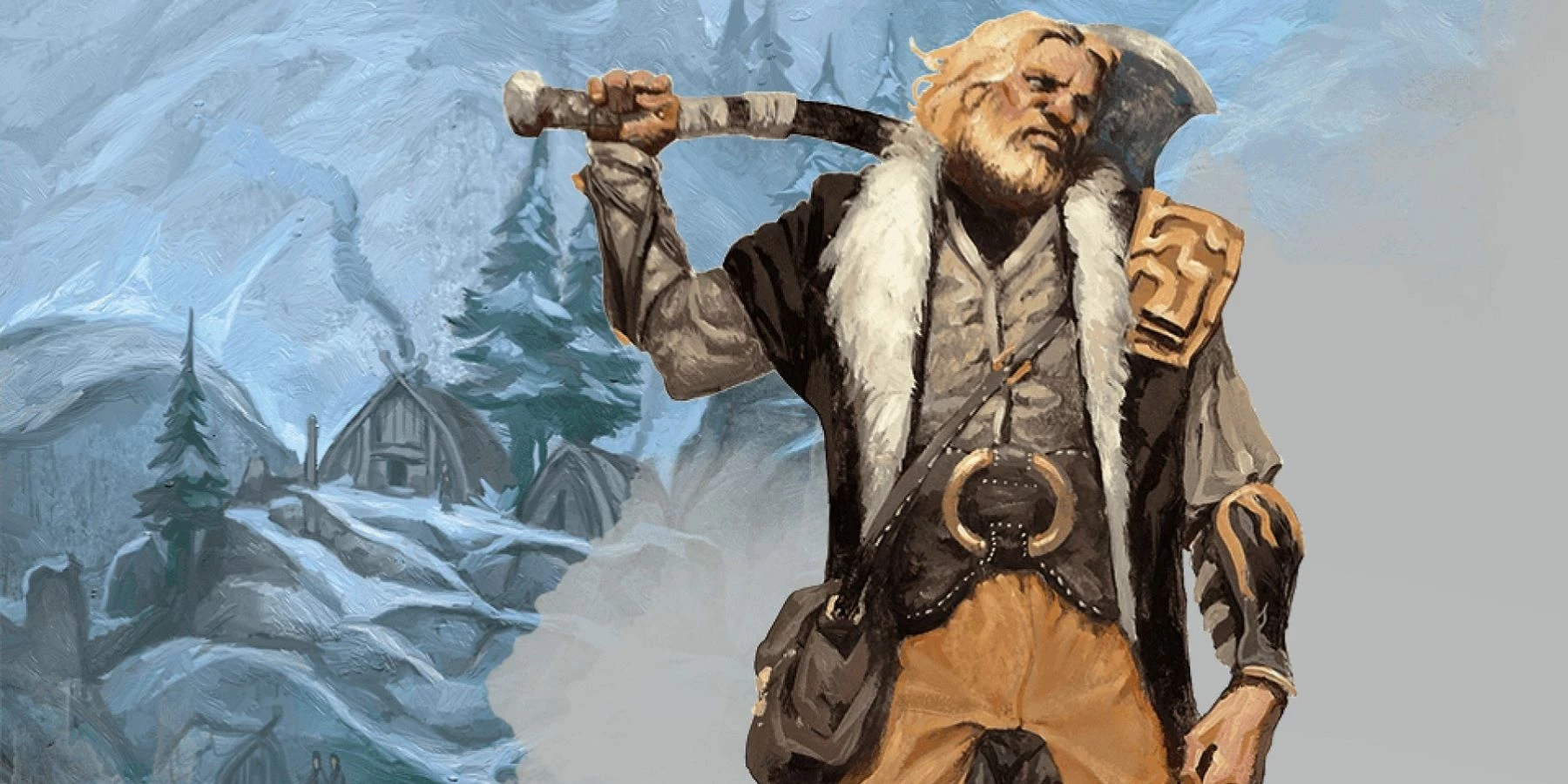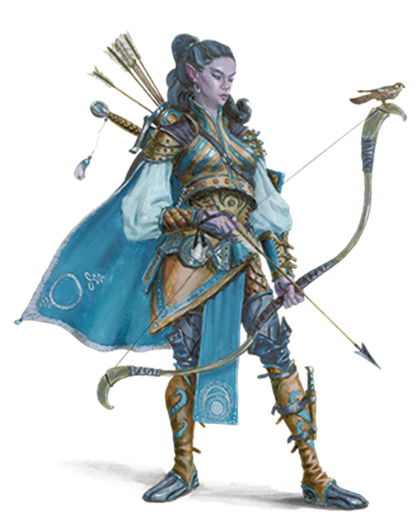Clerics have more powerful cure spells. They can raise the dead and have at least as many healing modifications as bards or may learn traditional prayers and old rites, but their ability to cast cleric powers is ultimately based on devotion.
Clerics combine the beneficial powers of healing and motivating companions with spells that damage and severely impact their enemies.
Cleric Class Details:

A small creature begins to glow with an inner light that spreads forward to cure his fighting friends as he raises his arms and eyes to the sun with a prayer on his lips.
He throws his axe in vast areas through the rows of warriors gathered against him, crying gratitude to the gods with each opponent’s fall, singing a melody of glory.
A human lifts her religious sign as light flows from it, bringing a curse on the powers of the undead and returning the monsters approaching her friends.
Clerics function between the mortal world, Hence indeed the gods’ distant planes. He works very hard to represent the work of their religions in ways as different as the gods they serve. A cleric is a priest who has been infused with spiritual magic.
Warriors and Healers:
As the name implies, divine magic is the power of the god that flows into the world. Clerics act as channels for that power, expressing it in the form of miraculous effects. The gods do not convey this power to everyone who seeks it, but rather to those who have been chosen to fulfill a high calling.
Using divine magic does not require any study or training. However a cleric may learn uninspired prayers and old traditions, but the ability to cast cleric spells is based on devotion and an intelligent sense of the wishes of a religion.
He combines the beneficial magic of healing and inspiring allies with spells that harm and hinder their enemies. They can inspire fear and amazement, character disease or highly toxic curses, and even cast spell fire from heaven to consume their enemies.
Clerics rely on their weapons training to allow them to enter a gunfight with the power of the gods on their side against those evil forces who will benefit the most from a pistol to the head.
Agents of the Divine:
A cleric is not always a worshipper or event planner at a temple or shrine. Some priests are called to a simple life of temple service. Hence, carrying out the will of their gods through prayer or sacrifice rather than magic and strength of arms.
In some cities, the priesthood is considered a leadership position, a necessary step to stronger authority that involves no communication with a god. Clerics are rare in most representations.
When a cleric decides to begin work on an adventure. In other words, it is usually his or her god who orders it. Achieving the gods’ goals frequently involves resolving dangers beyond civilization’s walls, killing evil, or searching for religious icons in ancient tombs.
Many clerics are expected to protect the worshipers of their Greek gods, which may include slaughtering enemies, discussing peace between warring nations, or sealing a platform that would allow a demon ruler to enter the world.
Most adventuring clerics have some connections to established temples and orders of their faith. A temple may request the help and support of a cleric, or a high priest may be in a position to demand it.
Making a Cleric:
Many of the gods of the universe are mentioned in the Gods of the Universe section. Check with your DM to find out which believers are present in your advertisement.
Consider your cleric’s relationship to the god you’ve chosen. Did you volunteer for this position? Or did the god choose you, trying to force you into service against your will? What do your faith’s temple priests think of you: a champion or a troublemaker? What are your ultimate objectives? Is your god planning a special task for you?
QUICK BUILDING:
If you are following these guidelines. After that, you can quickly become a cleric. Your highest ability score should be Wisdom, followed by Strength or Basic law. Second, select an admirer’s background.
Class features:
However, you might gain the following class features as a cleric.
Hit Dice
: 1d8 per cleric level in hit points
Hit Points at First Level:
8 + your Constitution modifier
Hit Points at Higher Levels:
1d8 (or 5) + your Constitution modifier per cleric level after First Level
Proficiencies
Armor: Light armor, medium armor, and shields
Weapons: Basic weapons
Saving Throw: Wisdom, Charisma
Skills: Choose two skills from History, Insight, Medicine, Persuasion, or Religion.
Equipment:
In addition to the equipment provided by your background, you can begin with the following:
• War games
• Scale mail and chain mail
• A crossbow
• An explorer’s pack
• A shield.
Spellcasting:
You can cast cleric spells as a connector for spiritual power. The general rules of spellcasting can be found in Spells Rules, and the cleric spell list can be found in Spells Listing.
Cantrips:
At 1st level, you know three cantrips from the cleric spell list of your choice. Moreover, at higher levels, you learn additional cleric cantrips of your choice
Spell Preparation and Casting:
You must expend a slot of the spell’s level or higher to cast one of these spells. When you finish a long rest. In addition, you regain all spent spell slots.
You create a list of cleric spells that you can cast by selecting from the cleric spell list.
Select a number of cleric spells equal to your Wisdom modifier + your cleric level (minimum of one spell). The spells must be of the same level as your spell slots.
For instance, a 3rd-level cleric has four 1st-level spell slots and two 2nd-level spell slots. With a Wisdom of 16, you can prepare six spells of the first or second level in any combination. You can cast the 1st-level spell to cure wounds of a 1st-level or 2nd-level slot if you prepare it. Casting the spell does not remove it from your prepared spell list.
When you return from a long rest, you can update your list of prepared spells. Time spent in prayer and meditation requires when creating a new list of cleric spells: at least 1 minute per spell level for each spell on your list.
Ability to Cast Spells:
For cleric spells, wisdom is your spellcasting ability. Moreover, your devotion to your religion gives your spells their strength. Hence when a cleric spell connects to your spellcasting ability, then you use your Wisdom. In addition, while determining the saving throw DC for a cleric spell you cast and when making an attack roll with one, you use your Wisdom modifier.
DC of spell save = 8 + Ability modifier + skill bonus
Spell attack modifier = your proficiency bonus + your Wisdom modifier
Casting Ritual:
If a cleric spell contains the religious label. Similarly, if you have the spell prepared, you can use it as a ritual.
Focus on Spellcasting
You can utilize a holy symbol as a spellcasting focus for your cleric spells
The domain of the Gods:
Choose any one domain: Knowledge, Life, Light, Nature, Tempest, Trickery, or War, all of which ties to your religion.
Moreover, at the end of the class description, the Life domain is described in-depth, along with examples of gods linked with it.
For further information on all of the domains, kindly consult the Player’s Handbook. When you choose it at 1st level, it provides you domain spells and other benefits.
It also gives you more opportunities to use Channel Divinity at the 2nd level, as well as additional bonuses at the 6th, 8th, and 17th levels.
Spells with a Domain:
Each domain contains a set of spells known as domain spells that you obtain as you pass through the cleric levels specified in the topic description.
You always have a domain spell prepared once you get it. Hence, it doesn’t count against the number of spells you can prepare every day.
Mainly if you have a domain spell that isn’t in the cleric spell list, you can still use it as a cleric spell.
Divinity channel:
You gain the power to channel divine energy straight from your creator god at the 2nd level, which you can use to fuel magical effects.
You begin with two such effects: Turn Undead and a content effect.
As you go through the levels of some domains, you will receive extra effects, as mentioned in the domain description.
You get to choose which impact you want to generate when you utilize your Channel Virtue. In addition, to utilize your Channel Divinity again, you must first complete a short or long rest.
Some Channel Divinity effects require saving throws. When you employ one of these effects, the DC is equal to your cleric spell save.
You can use your Channel Divinity twice between rests starting at the 6th level, and three times between rests starting at the 18th level and restore your expended uses after you finish a short or extended rest.
Turn Undead using Divinity:
You show your holy sign and say a prayer generally using the undead as an action. Each zombie within 30 feet of you must make a Wisdom saving throw if they can see or hear you. The creature turns for 1 minute if it fails its saving throw or until any damage is caused to it.
A turned creature must spend its turns fighting to move as far away from you as possible, and it cannot move within 30 feet of you intentionally.
It’s also unable of reacting. It can only use the Speed action or try to avoid an effect that stops it from moving for its action. The monster can perform the Swim action if there is no other way to move.
Improvement of the Ability Score:
When you reach the 4th level, and then again at the 16th, and 19th levels. Similarly, you can choose to enhance one ability score by two points. This feature will not allow you to raise your ability score above 20.
You can use the optional achievements rule to skip this feature and instead pick a skill of your choice.
The Undead must be destroyed:
When an undead fails a saving throw against your Turn Immortal feature at 5th level or lower, the monster is instantaneously destroyed if its challenge rating is equal to or less than a specified limit.
The intervention of the Almighty:
When your need is great, you can call on your lord to act on your behalf starting at the 10th level.
You must use your action to take the support of your deity. Describe your need for assistance and roll percentage dice. Your god gets involved if you roll a number equal to or lower than your cleric level. The DM determines the intervention of nature; any cleric spell or cleric domain spell would serve.
If your deity takes action, you will be unable to use this feature for the next 7 days. Otherwise, after a long rest. In other words, you can utilize it once more.
Domains of the Gods:
Every deity in religion has control over different aspects of mortal life and civilization, which is referred to as a deity’s rulership.
The deity’s catalog refers to all of the regions over which he or she has authority.
The Greek god Apollo, for example, had the domains of Knowledge, Life, and similarly Light in his portfolio. As a cleric, you select one part of your deity’s portfolio to focus on and are given powers in that sector.
It’s possible that your selection relates to a certain group dedicated to your religion.
For example, Apollo could be honored as Phoebus (“radiant”) Apollo in one region, highlighting his power over the Light domain, and Apollo Acesius (“healing”) Apollo in another, highlighting his link with the Life domain.
Alternatively, your area choice could simply be a question of personal taste, the part of the divinity that you find most attractive.
The explanation of each area includes examples of deities who have power over that domain. Gods from the Forgotten Realms, Greyhawk, Dragonlance, and Eberron campaign settings. For instance, the Celtic, Greek, Norse, and Egyptian mythological gods of history, are represented.
The domain of Life:
The Life domain is related to the bright positive energy that supports all life and is one of the fundamental forces of the universe.
Healing the sick and wounded, caring for those in need, and driving away the powers of death and undeath are all ways that the gods of life promote life and health.
Agricultural deities, sun gods, gods of healing or endurance, gods of home and community, and gods of home and community.
Proficiency Bonus:
You get spell casters skills when you choose this domain at 1st level.
Life’s Disciple:
Your healing spells are also more effective starting at 1st level. Because when you cast a spell of 1st level or higher to restore hit points to a creature, After that, the creature gains 2 + the spell’s level in additional health points.
Preserve Life by Channeling Divinity
You can utilize your Channel Divinity to heal the badly wounded starting at the 2nd level.
As an action, you display your holy symbol and extract healing energy equivalent to restoring five times your cleric level in hit points. Select any creatures within 30 feet of you and distribute the hit points among them. This function can only restore a creature to half of its maximum health points. This ability isn’t available to undead or components.
Healer of Blessings:
The healing spells you cast on others begin to heal you at the 6th level. When you cast a 1st-level or higher spell that restores hit points to a creature other than yourself. After that, you gain 2 + the spell’s level in health points.
Strike of the Gods
You gain the power to combine divine energy into your weapon attacks at the 8th level. When you hit a creature with a weapon attack once per turn. In other words, you can cause the attack to deal an additional 1d8 radiant damage to the target. Hence the bonus damage rises to 2d8 when you reach the 14th level.
Supreme Remedy:
When you reach the 17th level, instead of rolling one or more dice to restore health points with a spell. Similarly, you use the highest possible number for each die, for example, restore 12 hit points to a creature instead of 2d6.
Read Also: Bard



